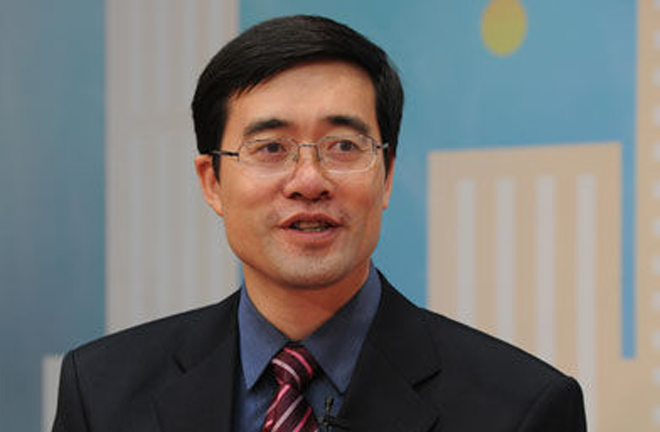GAO FEI: Rise of China vital to stable growth of global economy
 During the recently concluded the National People’s Congress and the Chinese People’s Political Consultative Conference, Chinese President Xi Jinping attended a discussion hosted by the Shanghai delegation of the National People’s Congress, where he remarked that China will adhere to a comprehensive opening-up policy while continuing to liberalize and facilitate trade and investment.
During the recently concluded the National People’s Congress and the Chinese People’s Political Consultative Conference, Chinese President Xi Jinping attended a discussion hosted by the Shanghai delegation of the National People’s Congress, where he remarked that China will adhere to a comprehensive opening-up policy while continuing to liberalize and facilitate trade and investment.
In the complicated international context, China has not only maintained stable development of domestic politics and economy but constantly put forward new initiatives for global governance, contributing new Chinese wisdom and standing out on the chaotic world stage.
What will China’s rise bring to the world? Today, China is not only the world’s factory but also the biggest, fastest-growing consumer market in the world as well as the most promising investment destination and the country with largest foreign exchange reserves.
In 2016, 122 million Chinese people traveled abroad, foreign direct investment totaled $170 billion, and China was the biggest trade partner of more than 120 countries.
Since the 2008 global financial crisis, China has contributed more than 30 percent to the world economic growth annually on average. It can improve the food supply of a country simply by means of agricultural investments, ease the power shortage of a country simply with an electric power project, and lead a country to leap from wire telephone to the 4G era simply through telecommunication cooperation. China’s rise has brought with it persistent world economic stability and growth as well as the joint development of countries around the world.
Performing international responsibilities and safeguarding world peace are the duties of China during its rise. China follows the principles of the UN Charter, actively assumes responsibilities as a permanent member of the UN Security Council, and has dispatched the most peacekeepers among all permanent members.
As the world faces mounting pressure from environmental pollution, China has shown leadership by making important commitments, playing a significant role in the agreement reached at the Paris Conference on Climate Change.
Upholding multilateralism and guiding global governance reform is a positive factor of China’s rise. In an age of mutual interdependency, countries across the globe can only grasp the right direction and gain mutual benefits when they bear the concept of “community with a common destiny” in mind and pull together.
More than three years since the “Belt and Road” initiative was proposed, China has signed related cooperation agreements with 40 countries and international organizations, along with support and participation of more than 100 more.
The “Belt and Road” has not only propelled a new round of reform in China but also ushered in a new globalization era in the world.
“Today, mankind has become a close-knit community of shared future. Countries have extensive converging interests and are mutually dependent. All countries enjoy the right to development. At the same time, they should view their own interests in a broader context and refrain from pursuing them at the expense of others,” Xi said at the World Economic Forum Annual Meeting in 2017.
Despite the menacing anti-globalization wave, China remains in favor of global free trade and investment by advancing trade and investment liberalization and facilitation, and opposing to protectionism with a clear-cut stand, soothing the nerves of the world.
According to a recent Gallup poll, the US impression of China has been most positive in three decades. A survey on 40 countries by Pew Research Center also suggests an increasingly positive global image of China. A thriving China accountable to the people, sticking to its principles, conforming to the times, and ready to take on responsibilities is sending strong positive energy to a world that craves development and stability. And it will definitely garner more recognition and support.
Gao Fei is a professor from China Foreign Affairs University.

 PRINT
PRINT CLOSE
CLOSE